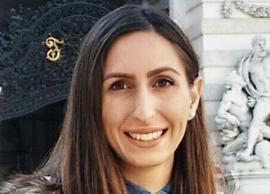Chrysanthi Leonidou completed her undergraduate studies in Psychology in 2011 at the University of Cyprus and an MSc in Health Psychology in 2012 at the University of Southampton (UK). Since 2013, she is a PhD student in Clinical Psychology at the University of Cyprus and she is conducting research at the Clinical Psychology and Psychophysiology laboratory under the supervision of Dr. Georgia Panayiotou. Her research interests combine health and clinical psychology research areas. Her main research focus is the influence of cognitive and affective mechanisms in the maintenance of severe health anxiety. Since 2015, she has been employed several times as a Special Scientist from the University of Cyprus to teach undergraduate modules in the Department of Psychology and to deliver lectures on the psychological aspects of chronic medical conditions in the Medical School. She is currently a student member of the Society for Psychophysiological Research and the Association of Contextual Behavioral Science.
Link to LinkedIn
Publications:
Foster, C., Calman, L., Grimmett, C., Breckons, M., Cotterell, P., Yardley, L., Joseph, J., Hughes, S., Jones, R., Leonidou, C., Armes, J., Batehup, L., Corner, J., Fenlon, D., Lennan, E., Morris, C., Neylon, A., Ream, E., Turner, L., & Richardson, A. (2015). Managing fatigue after cancer treatment: Development of RESTORE, a web‐based resource to support self‐management. Psycho‐Oncology, 24(8), 940-949.
Leonidou, C. & Giannousi, Z. (2018). Experiences of caregivers of patients with metastatic cancer: What can we learn from them to better support them? European Journal of Oncology Nursing, 32, 25-32.
Leonidou, C., Panayiotou, G., Bati, A., & Karekla, M. (2016). Coping with psychosomatic symptoms: The buffering role of psychological flexibility and impact on quality of life. Journal of Health Psychology. https://doi.org/10.1177/1359105316666657.
Panayiotou, G., Karekla, M., & Leonidou, C. (2017). Coping through avoidance may explain gender disparities in anxiety. Journal of Contextual Behavioral Science. 6(2), 215-220.
Panayiotou, G., Leonidou, C., Constantinou. E, Hart, J., Rinehart, K., Sy, J., & Bjorgvinsson, T. (2015). Do alexithymic individuals avoid their feelings? Experiential avoidance mediates the association between alexithymia, psychosomatic, and depressive symptoms in a community and a clinical sample. Comprehensive Psychiatry, 56, 206-216.






